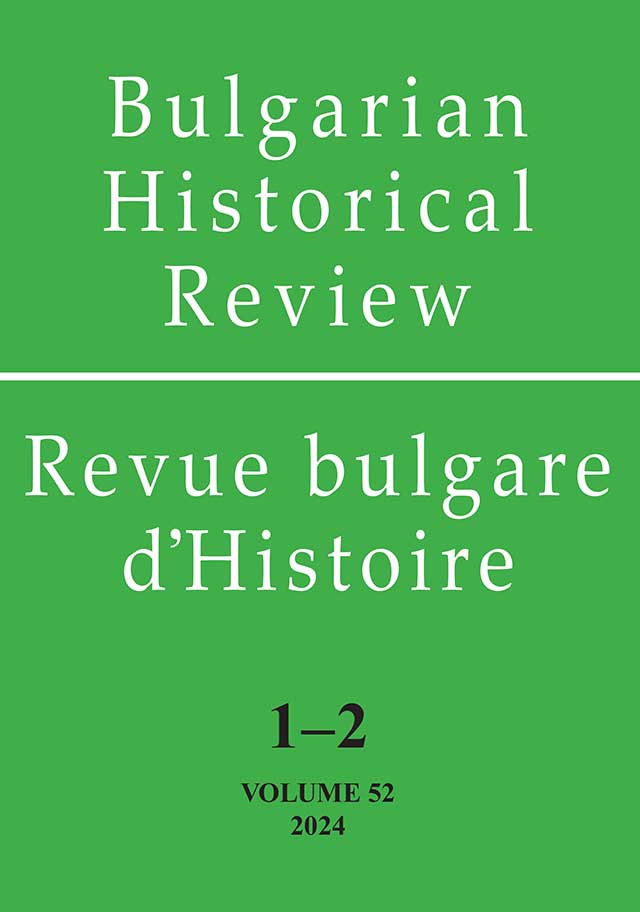Nikšić Area in the Principality of Montenegro after the Berlin Congress and International Recognition in 1878
Nikšić Area in the Principality of Montenegro after the Berlin Congress and International Recognition in 1878
Author(s): Jovan MuhadinovićSubject(s): History, Cultural history, Ethnohistory, Local History / Microhistory, Political history, Social history, Modern Age, Special Historiographies:, 19th Century, The Ottoman Empire, Between Berlin Congress and WW I, Historical revisionism
Published by: Институт за исторически изследвания - Българска академия на науките
Keywords: Montenegro; Muslims; Berlin Congress; international law; properties;
Summary/Abstract: On the basis of extensive research in the State Archives of Montenegro in Cetinje (SAM) within the fund of the Ministry of Internal Affairs of the Principality of Montenegro for the period from 1880 to 1896, as well as relevant literature, we analyzed the situation in Nikšić. Nikšić with its surroundings was one of the largest regions that was annexed to Montenegro after international recognition at the Berlin Congress in 1878. We must emphasize that archival documents with these details were used for the first time in this paper. Documents of similar or the same provenance make an integral part of some monographs used in this paper, but not in this issue and with this much detail. They are about agrarian reform and the distribution of land to the families of Montenegrin soldiers. However, there is hardly no mention that the land was illegally taken from its legal owners, thus violating the provisions of the Berlin Congress of 1878. It is a well-established opinion of readers, including some historians, that Prince Nikola I Petrović Njegoš and the Montenegrin government did everything to comply with the decisions of the Berlin Congress in 1878, which recognized Montenegro internationally. However, the truth is completely different. Muslims who were in conflicts with the Principality of Montenegro for centuries had become its subjects. The best areas of land in the newly liberated regions belonged to them. Contrary to the decisions from Berlin, the Montenegrin authorities did everything to prevent the return of the refugee owners to their property. A huge number of families of Montenegrin warriors who fought against the Ottomans for centuries settled large areas of abandoned land. Cetinje’s secret policy was to prevent the owners from returning through bureaucratic pressure and delay of the process. We found that in relation to the opinion about the correct attitude of the Montenegrin authorities towards Muslims - subjects of the Ottoman Empire, who were almost entirely the population of the Nikšić region, the reality was quite different. Montenegrin authorities have been working for years to evict the Muslim population and appropriate their goods and real estate. Despite the provisions of the Congress of Berlin, which guaranteed all rights to Muslims, the Montenegrin government systematically carried out this intention to the end.
Journal: Bulgarian Historical Review / Revue Bulgare d'Histoire
- Issue Year: 2024
- Issue No: 1-2
- Page Range: 48-61
- Page Count: 14
- Language: English
- Content File-PDF

